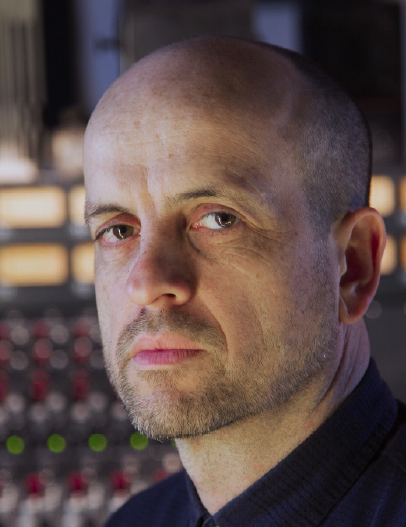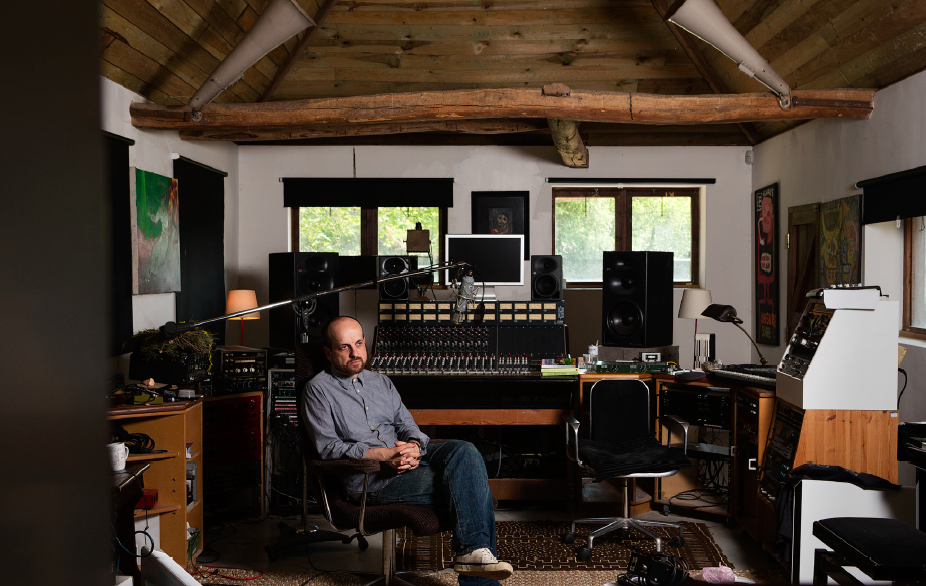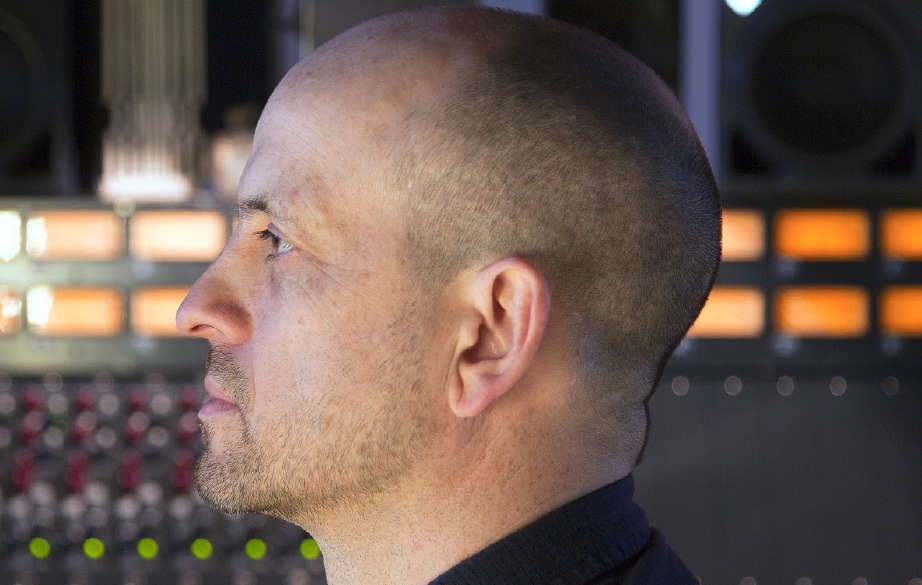It’s not every day that an MPG Award nominee reveals that their inspiration to create music is fuelled by contempt for Micheal Gove, or to have a piece of work that centres around recording the sounds of a pig’s life – from birth, to plate. Headliner meets musician and producer Matthew Herbert to talk music-making, our understanding of the universe, and striving for originality.
Inside London’s Strongroom Studios, Headliner is waiting to meet a man of many names. Should we address him as Herbert, Doctor Rockit, Radio Boy, Mr Vertigo, Transformer, or Wishmountain? These days, he’s quite happy to be known simply as Matthew Herbert.
Up for Re-mixer Of The Year at this year’s MPG Awards, Herbert has not stuck to his lane in electronic music production over the years, nor to traditional sources of inspiration. Starting out in the industry in the ‘80s, Herbert went on to achieve success in mainstream remixing for artists such as Moloko, Ennio Morricone, Quincy Jones, PUZZLE, Björk, REM, Perry Farrell, Serge Gainsbourg, Yoko Ono, John Cale, The Avalanches and Cornelius. So far, so normal.
But this is not where his interests truly lie; Herbert wants to delve deeper – being much more interested in speaking out about important issues ignored by the media. Herbert seeks to challenge the norm, have the world open its eyes to the bigger issues, and question our political landscape. This is where his creative side really comes alive – his unique projects blurring the lines between music production and experimental, surrealist art.
In 1998, Herbert issued Around the House, which mixed dance beats, sounds generated by everyday kitchen objects, and vocals, followed by Bodily Functions in 2001, which featured sounds generated by manipulating human hair and skin – as well as internal bodily organs. Plat du Jour was his next offering – a record made entirely from the sounds of objects and situations in the food chain, before serving up his most controversial piece to date – One Pig, where he recorded the life cycle of a farmed pig from birth, to the dinner plate.
A love of sampling was sparked when Herbert was a boy:
“I had a Casio FZ-1 sampler/synthesizer keyboard, and I used it to chop up songs off the radio,” he remembers. “This got boring very quickly; in the space of about half an hour I felt like I was shopping – just consuming and taking stuff that I didn't know the context of, or how it was made. I have no problem with that way of music-making, but for me, it didn't feel original. It felt like I was shuffling somebody else's ideas around.”
The turning point came later, when inspiration struck whilst he was eating an apple:
“I bit into an apple, and mic’d it up and plugged it into my computer. That was really transformative – if you slow down an apple crunch, you can hear the fibres pulling away from each other,” he enthuses. “I actually recorded one for a project recently, and it sounded like a tree coming down – so I’m really messing with the fabric and materials of time, and how we understand the universe.”


